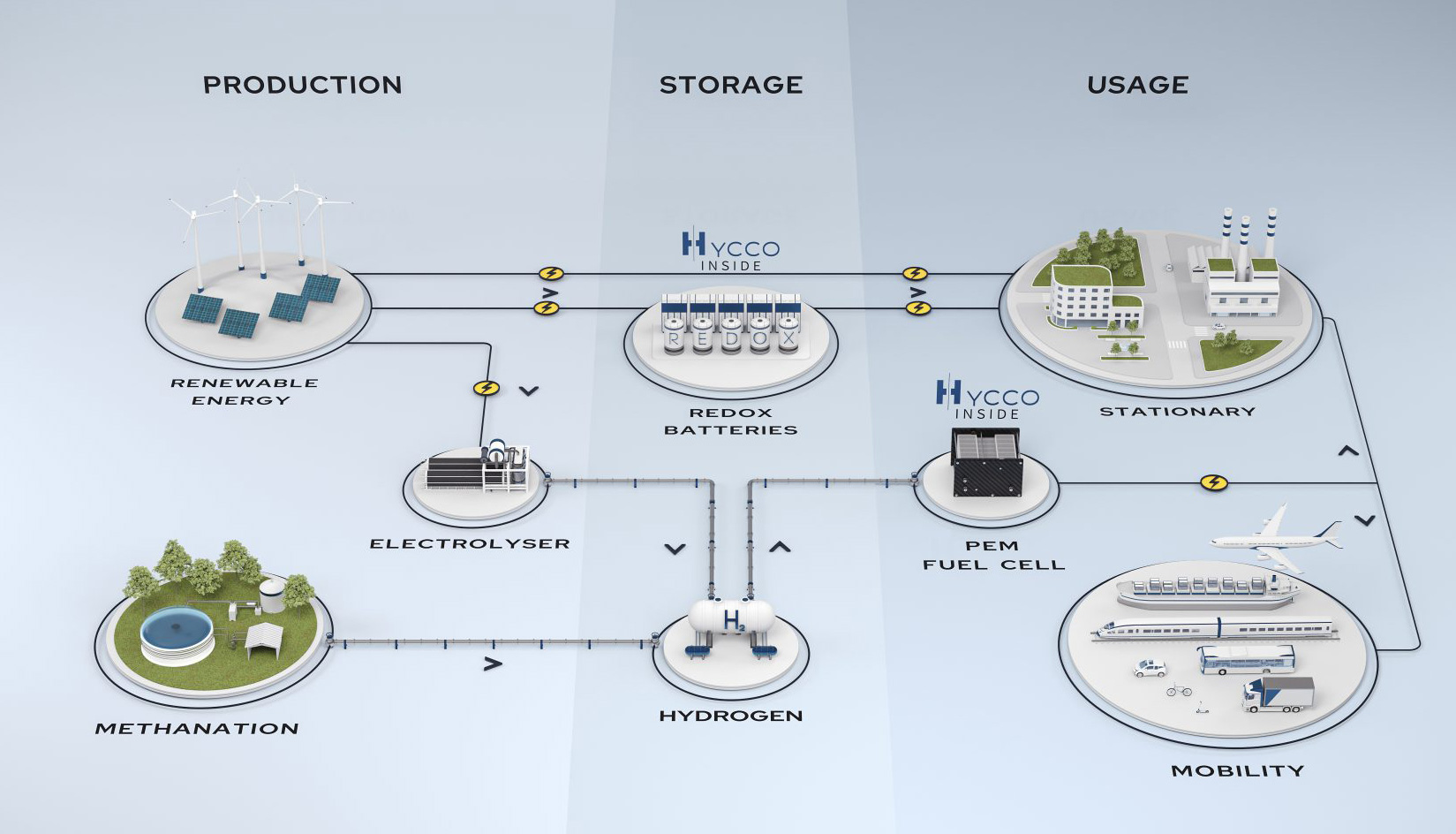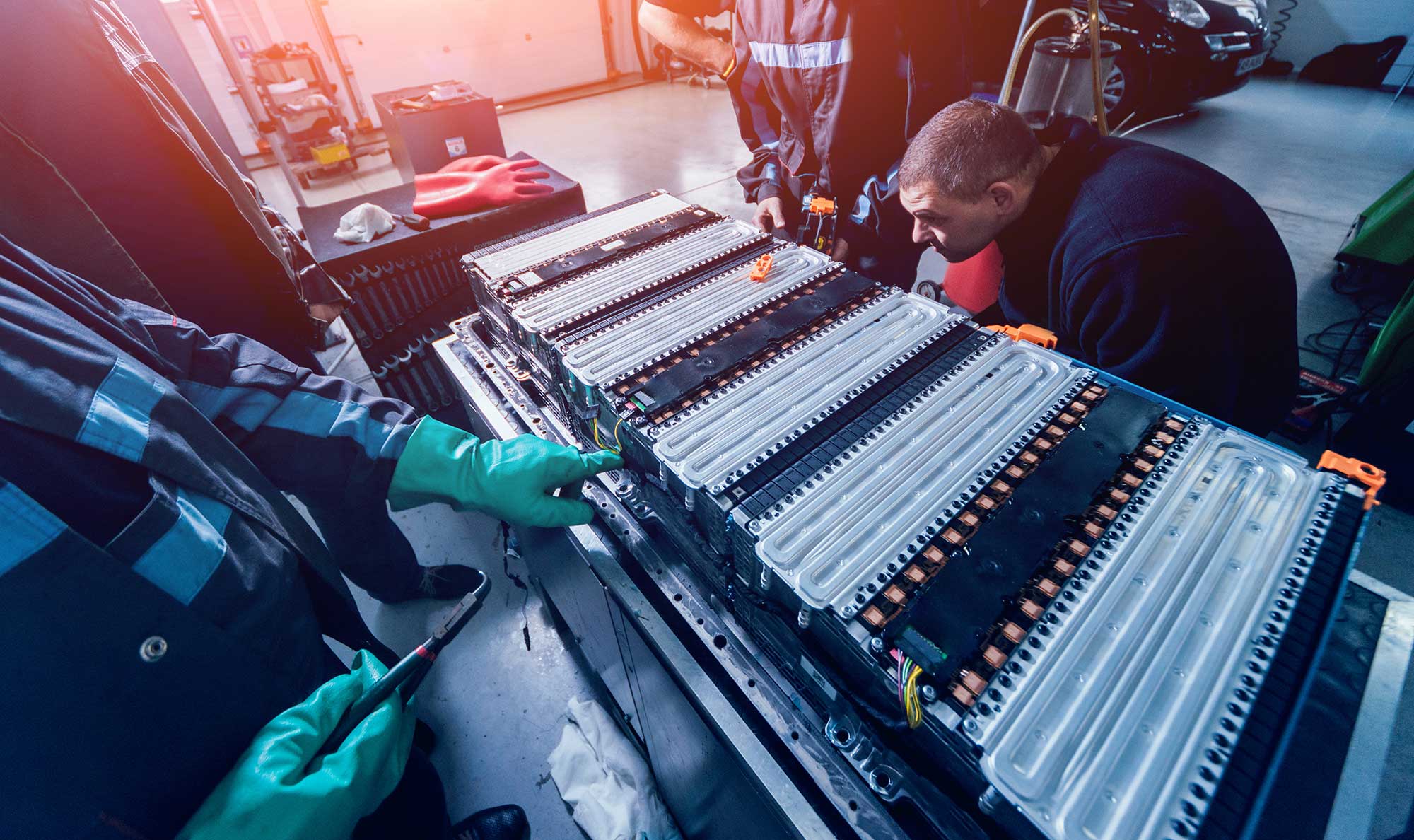Bipolar plates are components that are present in the entire green hydrogen ecosystem. The entire hydrogen economy is based on the use of electrochemical conversion energy devices, such as electrolyzers, fuel cells, and REDOX flow batteries. Using the di-hydrogen molecules as an energy vector, un-needed energy produced by renewable energy can be stored into gas, before being converted back into electricity when necessary. All those systems use bipolar plates.
By producing a such key component that intervenes in the entire hydrogen ecosystem, HYCCO is in full capacity to offer cost-competitive solutions to massively de-carbonate various applications, like heavy mobility (shipping, railway, aeronautics, trucks, buses and more…).


